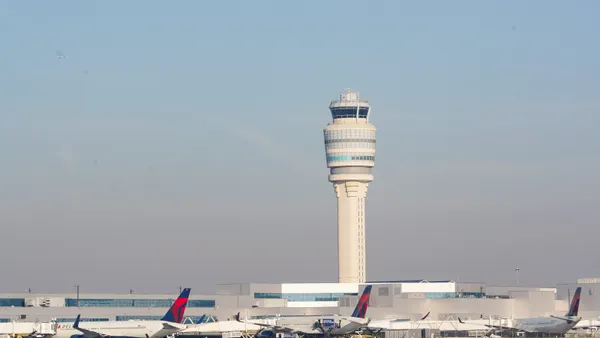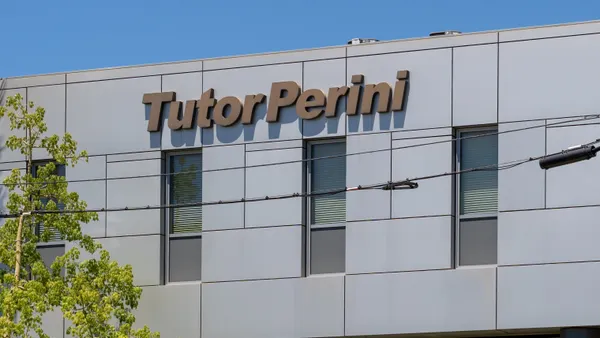WASHINGTON—Union leaders and some of their congressional advocates are convening at North America’s Building Trades Unions’ 2019 Legislative Conference this week, and the need for infrastructure investment has been the resounding theme.
NABTU President Sean McGarvey kicked off his remarks to the 14 unionized organizations present by counting the recent overturn of Right to Work legislation in Missouri, enactment of prevailing wage laws in Illinois and the recent Count Me In campaign protesting the use of nonunion labor at New York City's Hudson Yards as victories for the organization, as well as evidence of a “reinvigoration that the building trades have not seen in years.”
This kind of push “is the force we need to get a trillion-dollar infrastructure bill on the president’s desk,” he said, one which employs unions and allows them to leverage some of their own capital to help fund projects.
As an example of the form this could take, McGarvey pointed to the $13 billion John F. Kennedy International Airport Terminal 1 project, which received $150 million in investments from union members’ retirement money. He called on the unions to insist on their pension funds being invested in ways that provide work opportunities to members and create additional unionized jobs, noting that strong returns result.
McGarvey and House Speaker Nancy Pelosi both knocked the Green New Deal, New York Rep. Alexandria Ocasio-Cortez’ pet project, as detracting from bipartisan infrastructure efforts. “Both parties got distracted by a shiny new object,” McGarvey said, suggesting that initiatives to curb carbon emissions can be effectively folded into a comprehensive infrastructure plan.
A “real deal,” he continued, empowers union workers in the energy sector for natural gas export and other forms of clean energy construction.
Pelosi emphasized a "green ideal," in which infrastructure is built “in a green way” to create jobs and maintain commerce. It shouldn’t look like a plan “that subtracts as it adds,” she said.
The speaker also signaled her commitment to “supporting community standards like collective bargaining … prevailing wage laws, project labor agreements and fair workplace policies,” as well as to the Davis-Bacon Act, which requires public project owners to pay a prevailing wage set by the Labor Department. Studies have found that prevailing wages can raise project costs by 20%.
The infrastructure bill is likely to preserve prevailing wage provisions, a concession to Democrats by President Donald Trump's administration, and comments from U.S. Secretary of Labor Alexander Acosta also underscored this. “Infrastructure will and should include Davis-Bacon,” he told a cheering audience.
The time is right to get a robust plan in place, Acosta suggested. "We’ve never seen an economy more favorable to construction in decades.” But the country is playing catch-up, and as the economy grows, so will the strain on existing roads, bridges, tunnels and more.
Confronting these needs aggressively and with generous funding is a "win-win," he said. “America wins because as we invest in and strengthen our nation’s lifelines and create channels to growth, our economy expands.” Meanwhile, the resulting construction creates "more good family-sustaining jobs and careers," said Acosta.












